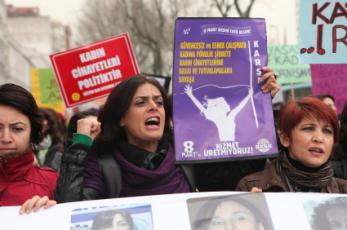Feminist movements primary drivers of change on violence against women
Mon 15 Oct 2012
A study of 70 countries over four decades has found that the presence of autonomous feminist social movements in civil society is the most significant ...
 A study of 70 countries over four decades has found that the presence of autonomous feminist social movements in civil society is the most significant factor affecting whether progressive policies on violence against women are implemented. This was more significant than the presence of leftist parties, women in government or economic factors like national wealth.
A study of 70 countries over four decades has found that the presence of autonomous feminist social movements in civil society is the most significant factor affecting whether progressive policies on violence against women are implemented. This was more significant than the presence of leftist parties, women in government or economic factors like national wealth.
The researchers write, "In the case of VAW, autonomous feminist movements are the primary drivers of change because they articulate social group perspectives, disseminate new ideas and frames to the broader public, and demand institutional changes that recognize these meanings."
The study also found that the impact of global norms on domestic policy making is conditional on the presence of feminist movements in domestic contexts, pointing to the importance of ongoing activism and a vibrant civil society.
The researchers write, "Women organizing to advance women’s status have defined the very concept of VAW, raised awareness, and put the issue on national and global policy agendas. Feminist movements—as opposed to movements of women organized for other purposes—were the critical actors. Looking at 36 stable democracies from 1974–94, Weldon (2002a) found that in each of these instances strong, autonomous women’s movements were the first to articulate the issue of violence against women and were the key catalysts for government action. Government action on violence is usually adopted in response to domestic or transnational activists demanding action from the outside. Although individual women, sometimes female legislators, have become spokespersons on the issue, they generally owed their awareness and motivation to their participation in or connection to women’s autonomous organizing (Joachim 1999; Weldon 2011)."
Photo credit: iStock


